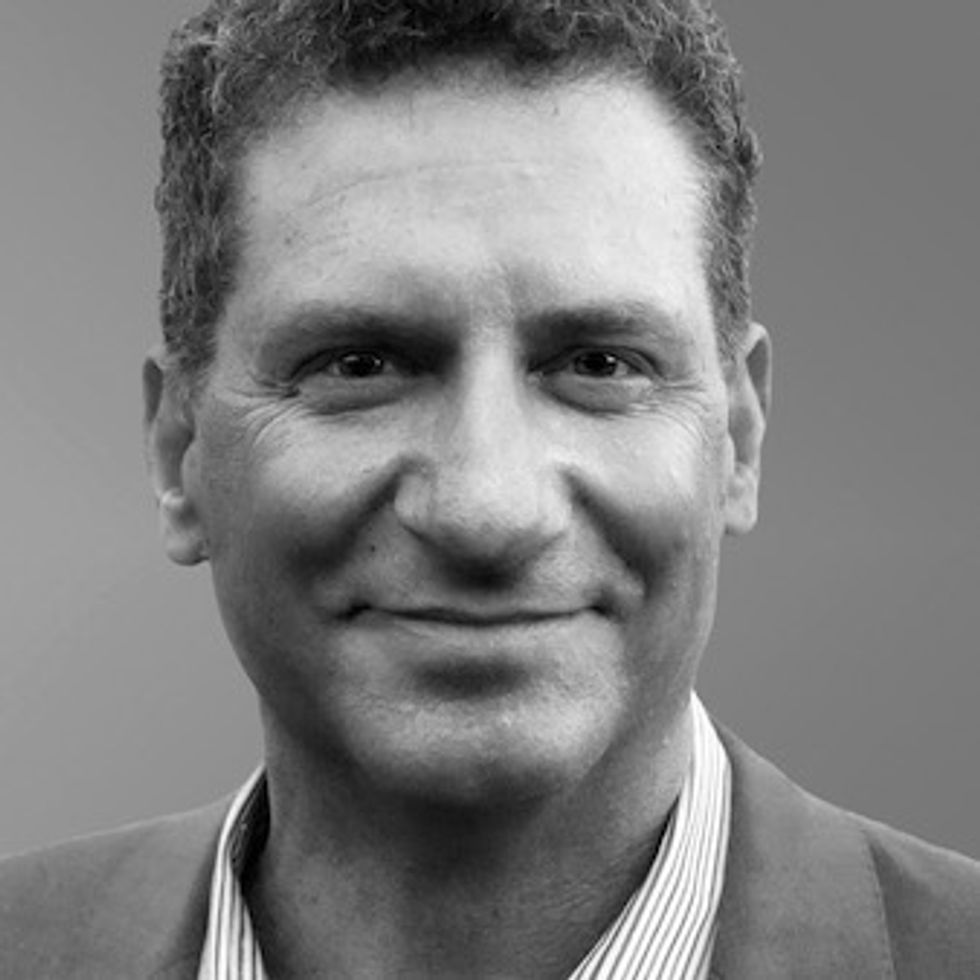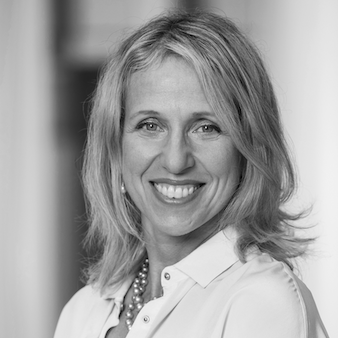Trending Now
We have updated our Privacy Policy and Terms of Use for Eurasia Group and its affiliates, including GZERO Media, to clarify the types of data we collect, how we collect it, how we use data and with whom we share data. By using our website you consent to our Terms and Conditions and Privacy Policy, including the transfer of your personal data to the United States from your country of residence, and our use of cookies described in our Cookie Policy.
{{ subpage.title }}
Russia has no endgame — but it's not out of the game (yet)
Russia's war in Ukraine upended geopolitics in 2022. And its fallout will extend into 2023.
The one thing that keeps international relations expert Tom Nichols up at night is that there's no endgame for Russia, a permanent member of the UN Security Council turned nuclear-armed rogue state.
On GZERO World with Ian Bremmer, former US State Department official Anne-Marie Slaughter pushes back, arguing that while Russia may have gone rogue for the West, much of the rest of the world is still happy to deal with Moscow.
Still, Nichols says Vladimir Putin is a terrible strategist because he was already getting what he wanted before invading Ukraine: global institutions were weakening. If they hold now, he adds, it'll be thanks to Putin.
What's more, for Slaughter the Russian military has performed so poorly in Ukraine that they've made the Ukrainians "look pretty good by comparison."
Watch the GZERO World episode: On Russia’s reckoning, China’s vulnerability & US democracy’s Dunkirk
2022 has been rough. Will 2023 be any better?
2022 has been the year of converging crises: the ongoing pandemic, climate change, economic turmoil, and Russia's invasion of Ukraine. Lots of gloom and doom, indeed.
But in all these crises, there is an opportunity to bounce back with solutions to make the world a better place. Think of how the war in Ukraine united the West more than ever against a common enemy.
How? Good question. We asked several experts during the Global Stage livestream conversation "The Road to 2030: Getting Global Goals Back on Track," hosted by GZERO in partnership with Microsoft.
For Ian Bremmer, president of Eurasia Group and GZERO, the main reason for hope in 2023 is that this year some people realized that there are big problems worth fixing. Although we definitely live in a G-zero world with a vacuum of global leadership, he adds, we've also seen unprecedented Western unity that would not have happened without Russia invading Ukraine. Ian believes that resistance to a negotiated solution to the war will come from the developing world and that Elon Musk is definitely complicating things with how he's running Twitter.
Microsoft President Brad Smith discussed the UN Sustainable Development Goals, which at their halfway point he sees as a "glass half full, half empty" but questions how progress is being measured. Also, Smith sees Russia turning to civilians in Ukraine because its military is losing against Ukrainian soldiers, which he regards as the opposite of what the world agreed to do after World War II. On climate, he doesn't see things in good shape after COP27 but hopes today's multiple ongoing crises will push us to do more things together.
Melissa Fleming, the UN's Undersecretary-General for Global Communications, laments there is so much more to be done to make the world a better place next year, but there's so much lethargy amid all the gloom and doom. She also braces for Ukraine's tough winter as Russia targets the country's energy infrastructure. Fleming is worried about a disturbing spike in climate change disinformation, which has returned to the denial narrative when people most need to be informed about what's happening to the planet.
Khadija Mayman from the Whitaker Peace & Development Initiative underscores the need for young people in her community to get mental health support. Other types of support would be welcome, too — youth want to do the work, but they can't wait forever for jobs, so we need to help create businesses that'll employ them.
Hindou Ibrahim, co-chair of the International Indigenous Peoples Forum on Climate Change, says that we can't protect biodiversity without first recognizing Indigenous peoples' rights to land and access to finance. We must all be partners, she adds, and Indigenous peoples are the "CEOs" (chief ecological officers) of the planet's biodiversity.
Dr. Omnia El Omrani, Youth Envoy for COP27 and SDG Champion, resents how young people's voices are excluded from the global climate conversation while they are disproportionately impacted by the effects of climate change. She wants to create a space for young people to be able to shape their own futures without killing their dreams.
This livestream is the latest in the Webby-nominated Global Stage series, a partnership between GZERO and Microsoft that examines critical issues at the intersection of technology, politics, and society.
- COVID's impact on education and its long-term geopolitical consequences: Gerald Butts ›
- Who can solve the world's "emergency of global proportions"? ›
- Is the world coming apart? Drama at Davos ›
- Top Risks 2022: We’re done with the pandemic, but the pandemic ain’t done with us ›
- Russia freezing out Ukrainian civilians because it can't beat military, says Microsoft's Brad Smith - GZERO Media ›
- We can't fix climate change without protecting biodiversity, says UNFCCC official - GZERO Media ›
Episode 5: Could today’s crisis lead to future growth?
Listen: “Geopolitics and their impact on the markets are greater right now than at any point in my professional life,” said Ian Bremmer, president of Eurasia Group and GZERO Media.
In this episode of “Living Beyond Borders,” a special GZERO podcast series brought to you by Citi Private Bank, we’re looking at the current state of the global economy. Gas prices are skyrocketing, supply chain issues abound, and we’re facing a bear market that has sent stock prices tumbling.
All of these issues are exacerbated by the still ongoing COVID-19 pandemic, Russia’s war in Ukraine, and a growing divide and decoupling between China and the US.
But could there be opportunity in this moment of great uncertainty? Our discussion gives investors a frank and forward-looking view of what to expect in the coming weeks, months, and years.
This episode, moderated by Shari Friedman, Eurasia Group’s Managing Director of Climate and Sustainability, features Ian Bremmer in conversation with David Bailin, Chief Investment Officer and Global Head of Investments at Citi Global Wealth.

David Bailin
Chief Investment Officer and Global Head of Investments, Citi Global Wealth

Shari Friedman
Managing Director of Climate and Sustainability at Eurasia Group

Ian Bremmer
President, Eurasia Group and GZERO Media
- S3 Episode 4: Is now the time to buy? Real estate dynamics in 2022 ... ›
- S3 Episode 2: Saving the world's water supply - GZERO Media ›
- S2 Episode 8: COVID Continued: What the world will look like in ... ›
- S3 Episode 1: If the economy is good, why do I feel so bad ... ›
- S3 Episode 7: Future-proofing: How we fix broken supply chains - GZERO Media ›
- S3 Episode 8: How closing the gender gap drives economic growth - GZERO Media ›
- S3 Episode 9: US/China power struggle, the global political balance, and your finances - GZERO Media ›
- S3 Episode 6: Economic weapons & fallout of the new Cold War - GZERO Media ›
- The economic power of women - GZERO Media ›
Episode 1: If the economy is good, why do I feel so bad?
Listen: Last year the US economy grew 5.7%, the biggest growth rate in decades, yet at the beginning of 2022 fewer than 1 in 5 Americans thought it was strong. And as the world confronts the converging crises of pandemic and war in Ukraine, inflation and skyrocketing prices are further contributing to feelings of financial insecurity.
The latest episode of Living Beyond Borders, a special podcast series from GZERO brought to you by Citi Private Bank, takes an honest look at why there is still reason for optimism, and what we can expect from US and global markets in the year ahead. Moderated by Shari Friedman, Managing Director of Climate and Sustainability at Eurasia Group, this episode features David Bailin, Chief Investment Officer and Global Head of Investments at Citi Global Wealth and Robert Kahn, Director of Global Macroeconomics at Eurasia Group.

David Bailin
Chief Investment Officer and Global Head of Investments, Citi Global Wealth

Shari Friedman
Managing Director of Climate and Sustainability at Eurasia Group

Robert Kahn
Director of Global Macroeconomics at Eurasia Group
EU 2022: COVID waves, Russia & Ukraine, and French presidential elections
Carl Bildt, former Prime Minister and Foreign Minister of Sweden, shares his perspective from Europe:
Another year of the pandemic has passed. We are in a new wave in Europe, and that is dominating quite a lot of the politics of different countries.
But as we are looking ahead towards the next year, what do we see there?
We hope the pandemic will gradually fade away, but that is by no means certain. We do face a lot of worries of what's happening in the east of Europe, the intention of Russia. Will Putin really launch a major invasion of Ukraine, or a minor military operation? Or it’s just sheer blackmail under military pressure? I think the first weeks, the first months of next year will be decisive in that particular respect.
And then, the French presidential elections and a lot of atmospherics associated with that, and the French have the presidency of the European Union to the first half of the year. You will hear a lot of that, and a lot of discussions of what to do with the economic policy. What I call the rescue from the rescue. Can we get out of all of these aid packages and subsidies and exemptions for the normal rules and get back to a more competitive Europe in a global economy that is changing very fast?
So, certainly, no absence of big issues as we are preparing to celebrate the new year in Europe.
Can political leadership prevent cyberattacks in 2022?
Marietje Schaake, International Policy Director at Stanford's Cyber Policy Center, Eurasia Group senior advisor and former MEP, discusses trends in big tech, privacy protection and cyberspace:
What are the positive changes in 2022 that we might expect to see in the cyber world?
Well, my hope is that more awareness of the harms of cyberattacks and intrusions on people will lead to stronger political leadership towards better prevention and accountability. Because too often criminals or states that attack others for their own gains simply get away with it. Only when we appreciate that the digital realm is not a universe detached from our own lives, and that attacks lead to patients sent away at hospitals, to food not reaching grocery stores, or fuel not being available at gas stations, we see more political concern over the systemic weakness throughout the technological system and ecosystem. We use both in everyday, mundane context or in very sensitive ones.
US in 2022: Smarter social media, more housing & living with COVID
Jon Lieber, head of Eurasia Group's coverage of political and policy developments in Washington, discusses social media, US housing market, and learning to live with COVID-19:
What are three profound changes that you would foresee that will shift the nation in a good way?
Well, it's kind of hard to be optimistic when you spend too much time looking at US politics, but I'll give you three things I think would help. One, and that will help, one, Americans are going to get smarter about social media. A quiet storyline this year has been an ongoing investigation in Congress into the harm that can be caused by unfettered access to social media platforms. A whistleblower came forward with some evidence from some of the tech companies suggesting that too much time on social media can be harmful, particularly for teen girls. And I think parents are going to start to get smarter about this issue. There won't be legislation, and this will be a slow process. While unfettered 24-7 human contact has been great in many ways, it also has a dark side, and these kinds of congressional investigations will help give parents new tools to help deal with that.
Two, more housing. We're in the middle of a mulit-year-long nationwide housing crisis. Median home prices have nearly doubled over the last 10 years with a huge run-up in the last year or two during the pandemic. Policymakers in California have responded by banning single-family zoning, allowing more houses to be built on any given plot of land. And you should start to see more of this type of thing across the country. Higher interest rates will help stop some of the price increases that you've seen over the last few years, but they won't necessarily make housing more affordable. What you need to make housing more affordable is more housing. And I think you're going to see it in the next few years.
Finally, the third big change I think would change the US for the better would be learning to live with COVID. It's been a very difficult two years for many, many Americans. The economy's still not quite back to where it was pre-pandemic, and a lot of Americans are still avoiding contact with each other, social distancing, canceling travel plans, staying away from grandparents, and all of this has a really sad effect. So I think learning to live with COVID and accepting the risk and the benefits of vaccination and booster shots that help keep people out of the hospital and keep them from dying will be a really helpful shift to make sure that schools stay open, education can go on un-disrupted, and families can get back together again.
Biggest cybersecurity threat to watch in 2022
Marietje Schaake, International Policy Director at Stanford's Cyber Policy Center, Eurasia Group senior advisor and former MEP, discusses trends in big tech, privacy protection and cyberspace:
What do you foresee to be the biggest cyber threat and crisis for the year 2022?
Well, to me, the blind trust in commercially made software and technologies, remains an enormous systems risk, because over and over again, we hear of vulnerabilities in thus far, unknown small elements of widely used software that is weaponized.
From Citrix to SolarWinds or Log4j. Now schools, critical infrastructure, hospitals, and governments, the smarter they became with the integration of more and more software, the more vulnerable to attacks they turn out to be, and to overcome the conflicting incentives between companies that may not be too eager to report incidents or share information, versus the need to strengthen protection, security, and resilience in the public interest. Laws, information sharing standards, and corporate liability regimes will have to be adjusted, updated and adopted.
- Cloud computing and US cybersecurity - GZERO Media ›
- DarkSide hack reveals risk of ransomware cyberattacks - GZERO ... ›
- Would you pay a cyber ransom? - GZERO Media ›
- A (global) solution for cybercrime - GZERO Media ›
- Constant Russian attacks on Ukraine in cyberspace - GZERO Media ›
- How Russian cyberwarfare could impact Ukraine & NATO response - GZERO Media ›
- How Russian cyberwarfare could impact Ukraine & NATO response - GZERO Media ›
- Will the US be able to withstand cyber attacks on critical infrastructure? - GZERO Media ›
- Hackers, Russia, China: cyber battles & how we win - GZERO Media ›
- Podcast: How the US will fight cyber wars - GZERO Media ›





